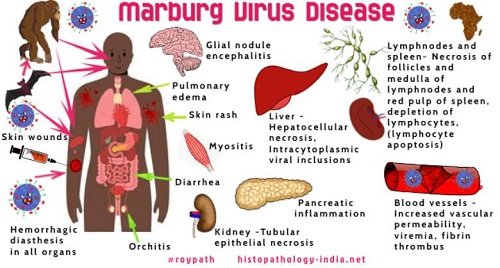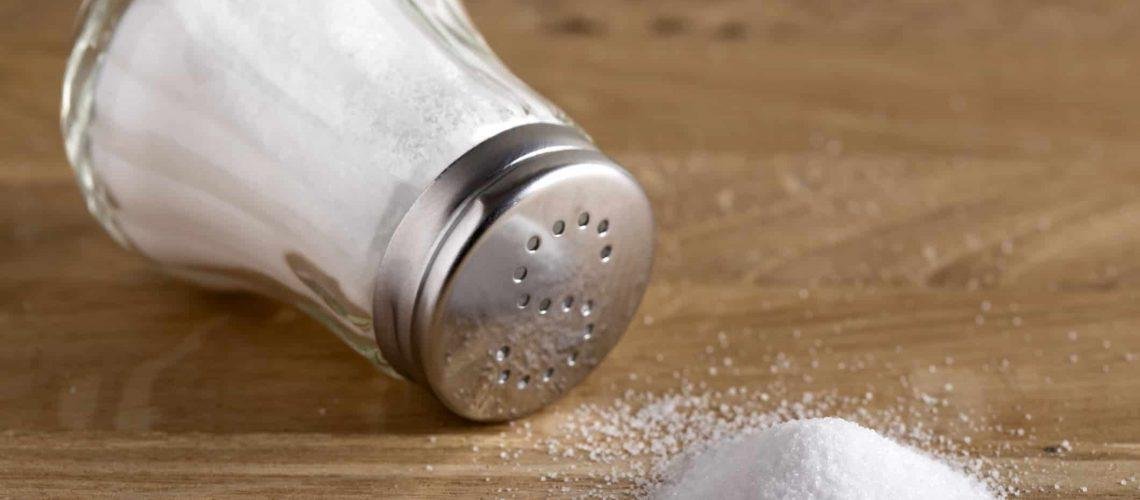Health Essentials
The Marburg virus disease – should we be worried?

“Ghana has confirmed its first two cases of the deadly Marburg virus, a highly infectious disease in the same family as the virus that causes the feared Ebola.”
As deadly as this disease is, all the two who tested positive for the virus died. Fortunately, the 98 contacts are all well and even the 13 who were randomly tested had negative results.
The questions on our minds include; where did they contract this disease from since no others have so far been diagnosed? They both had no history of travel outside the country and may not even ever had contact.
It appears the world is under attack from viruses and over the past few years this has become pronounced fuelling the thoughts of conspiracy theorists BUT we should at all times be cautious whenever there is the need for close contact with others AND we have to love one another and isolate when we are unwell while we get professional medical advice.
What is the Marburg virus? How is it transmitted? What are its symptoms? Is there a cure for the disease it inflicts on one’s body? How can one protect themselves from the virus? Read on for the answers to these questions.
WHAT THE MARBURG VIRUS IS
The Marburg Virus Disease (MVD) is a rare but severe hemorrhagic fever which affects both people and non-human primates. In simple terms, the virus affects multiple organ systems in the body and is accompanied by hemorrhage (bleeding).
It became known when it affected and killed some thirty-one people in Marburg and Frankfurt, Germany in 1967. Many of us in Ghana are familiar with Ebola Virus that is related to Marburg virus and as we are aware is also deadlier than one can ever imagine.
HOW THE MVS IS TRANSMITTED
The initial transmission (primary transmission) is from non-human primates, most especially the African Fruit Bat through their faeces and urine. Secondarily, it spreads in high numbers from person to person through close contacts, such as,
- Through broken skin or mucous membranes in the eyes, nose, or mouth or body fluids (urine, saliva, sweat, faeces, vomit, breast milk, amniotic fluid, and semen) of a person who is sick with or died from Marburg virus disease.
- Through infected needles, clothing and bed sheets. It is important for Health Practitioners to protect themselves using specialised personal protective equipment which covers them from head to toe while dealing with cases of such calibre.
- From infected people to their family members who are caring for them or preparing the dead for burial. Report to the hospital early if a family member shows any sign of the symptoms below and always wait for the autopsy report and clearance from the hospital before taking home a deceased family member for burial rites.
Thankfully, people who contract the Marburg virus typically don’t become contagious until they develop symptoms. It is important to note that there are no research findings that show that the virus can be spread through insect bites.
SYMPTOMS OF THE MARBURG VIRUS DISEASE
Like other viruses, the Marburg Virus Disease has an incubation (time from contact to exhibition of symptoms) period of 2 to 21 days after which the patient suffers fever, chills, headaches, and mild to severe muscle pain.
Five days after the symptoms above start, the patient may experience a rash on their trunk (chest, back, stomach), accompanied by nausea, vomiting, sore throat, chest pain, abdominal pain and diarrhoea.
Symptoms become more severe as the days go by. These may include severe bleeding, shock, liver failure, inflammation of the pancreas, massive weight loss, and multi-organ dysfunction.
CLASSIC SYMPTOMS;
- fever
- bloody diarrhoea
- bleeding from gums
- bleeding into the skin
- bleeding into the eyes
- bloody urine
MVD often ends up in death from multiple organ failure. Other complications include seizures (fits) and delirium.
TREATMENT FOR THE MARBURG VIRUS DISEASE
There aren’t any approved treatments or vaccines for the Marburg Virus Disease. Patients are given supportive care i.e., rehydration both through intravenous and oral means, balancing patient’s electrolytes, improving oxygen status and blood pressure, replacing lost blood and managing blood clot challenges etc. The goal is to manage specific symptoms.
HOW TO PROTECT YOURSELF FROM THE VIRUS
- Primarily, people should desist from having any contacts with fruit bats. As well as other primates such as monkeys, grasscutters etc. Avoid touching or eating these animals.
- Meat should be thoroughly cooked before eating
- Avoid caves and mines that may be harbouring the virus.
- With regards to human to human transmission, report to the nearest hospital in instances where you see any of the symptoms mentioned above on any relative or friend before assisting them. In instances where you have to assist the patient before the arrival of the medics, make sure to protect yourself before touching or assisting them.
- Medical practitioners should stick strictly to their safety routines when attending to patients including using the appropriate protective equipment.
- Wash your hands frequently and use your hand sanitizers in instances where there is the absence of soap and running water.
Recovery from this disease is slow and painful and the virus stays in one’s body for weeks while it takes months to regain your strength and the weight that is lost.
Note that THERE IS NO VACCINE to protect us from Marburg Virus Disease!!!!
The Marburg Virus Disease is quite rare but can spread very fast when a person contracts it. In Ghana, the Ghana Health Service has put in place measures that can help trace contacts and quarantine persons who have had contacts with infected persons.
Remember to follow all Covid-19 protocols as they go a long way to protect us from many other viruses including the Marburg Virus.
AS ALWAYS LAUGH OFTEN, ENSURE HYGIENE, WALK AND PRAY EVERYDAY AND REMEMBER IT’S A PRICELESS GIFT TO KNOW YOUR NUMBERS (blood sugar, blood pressure, blood cholesterol, BMI)
Augustina Amarh, Content Creator, Health Essentials Ltd
& Dr. Kojo Cobba Essel
*Dr. Essel is a medical doctor, holds an MBA and is ISSA certified in exercise therapy, fitness nutrition and corrective exercise.
Thought for the week – “Don’t lose out on laughter, the benefits match Exercise, Meditation & Sex all rolled into one.”
References:
- https://www.bbc.com/news/world-africa-62202240
- https://www.who.int/news-room/fact-sheets/detail/marburg-virus-disease
- https://www.cdc.gov/vhf/marburg/prevention/index.html
- GHS Press Release
By Dr. Kojo Cobba Essel
Health Essentials
Stop the silent killer: Breaking myths to prevent sudden deaths from high blood pressure

Every week in Ghana, a life is cut short, sometimes in the middle of traffic, sometimes at a desk, sometimes in the quiet of sleep. A father doesn’t come home. A sister doesn’t wake up.
A colleague slumps at work and never gets back up. Families are left asking why and you will hear statements like what happened? Was he sick? I just saw him, he has not shown signs of ailment, what a shock and so on.
Behind many of these sudden tragedies is a quiet, invisible force: high blood pressure, or hypertension. It doesn’t scream for attention. It doesn’t always show symptoms. But it tightens its grip silently on hearts, on brains, on lives.
This is not just a medical issue. It is a human one, it is about behaviour, it is about ignorance and it is about lifestyle. It is the grandmother who never got her blood pressure checked because she felt “fine.”
It is the taxi driver, the statistician, the nurse who ignored his pounding headaches, thinking it was just stress. It is the young lady who was so vibrant at church and no one suspected she could fall and die. Because it shows no symptoms.
The alarming numbers we cannot ignore
The Ghana’s 2023 STEPS Survey on Non-Communicable Diseases conducted by The World Health Organisation, Ghana Health Service and Ghana Statistical Service has revealed findings that should push for action.
According to the report, 21.7 per cent of adults aged 18 to 69 in Ghana are living with high blood pressure. Even more alarming is that 51.1 per cent of those with hypertension are not aware of their condition.
This means that more than half of the people with dangerously high blood pressure are walking around without knowing it until tragedy strikes. That is the real danger of this silent killer.
Literature has shown that hypertension is preventable and manageable. But only if we treat it like the threat, it is. That means regular checkups; that means understanding the risks and that means talking about it openly, urgently, and with compassion.
The deadly power of myths
Why are so many Ghanaians untested or untreated? Is it out of ignorance, or the pervasive myths about hypertension and its treatment?
• Some believe blood pressure medicine “weakens the body” or “shortens life.”
• Some believe blood pressure medicine “weakens the penis and kills sexual drive”
• Others think once you start taking medication, you are “dependent for life.”
• Many say, “I feel fine, so I must be fine.”
These beliefs are not only false, but they are also deadly. The truth, according to the World Health Organisation, is that effective treatment can reduce the risk of stroke by up to 40 per cent and heart attack by 25 per cent. Avoiding treatment does not prevent dependence rather, it accelerates death.
As Dr Patrick Kuma-Aboagye, former Director-General of the Ghana Health Service, has noted, “Hypertension is preventable and treatable, but our biggest battle is misinformation and late detection.”
A national conversation we must have
This is not just a health issue it is a national emergency. Sudden deaths rob families of breadwinners, communities of leaders, and the country of its productivity. In every obituary notice caused by hypertension, there is a story of loss that could have been prevented with a simple blood pressure check and treatment.
Behind every life saved is a moment of awareness, a decision to act, therefore, the media must rise to the challenge.
Radio and television programmes should dedicate regular airtime to demystify hypertension. Newspapers should carry survivor stories, expert interviews, and practical lifestyle advice.
Social media influencers should spread awareness in local languages, reaching young people who assume they are safe.
Public health experts also have a responsibility. Screening must move beyond hospitals into churches, mosques, markets, schools, and workplaces. People should not have to wait for illness to know their BP status.
What we can do together
To stop the silent killer, we need a collective response:
• Check your blood pressure regularly, even if you feel healthy.
• Follow medical advice faithfully if diagnosed because treatment saves lives.
• For healthy lifestyle, eat less salt, reduce alcohol, reduce starchy, fat and oil intake, avoid smoking, and exercise at least 30 minutes daily.
• Encourage one another talk about blood pressure in families, communities, and workplaces.
Conclusion: Silence is killing us
What kills is not just the disease, but the silence, fear, and myths that surround it. The STEPS 2023 report has sounded the alarm: nearly one in five Ghanaian adults has high blood pressure, and more than half don’t even know it.
This is the time for bold conversation, public education, and decisive action. The media, health professionals, policymakers, and ordinary citizens must join forces to expose the myths, spread the facts, and save lives. Let us not wait for another headline.
Let us make blood pressure a national conversation before it becomes a personal tragedy. With awareness, treatment, and collective will, Ghana can stop the silence and stop the sudden deaths from the silent killer.
Written by: Ansah Moses Teye-Akam – Senior Statistician, Sociologist/Scientific Research Organisational Expert.
Email: moses.ansah@ statsghana.gov.gh/ansahmosesteyeakam@ gmail.com.gh Contact: 0244539034 / 0204359034
Join our WhatsApp Channel now!
https://whatsapp.com/channel/0029VbBElzjInlqHhl1aTU27
Health Essentials
Your heart is precious ‘don’t miss a beat’

On September 29 of each year since 2000, we mark World Heart Day without fail but it appears we find a comfortable place to doze off after that, leaving the world’s number one killer to continue its havoc.
This year, the theme “Don’t Miss a Beat” focuses on “the importance of heart and blood vessel (cardiovascular) health by emphasizing how losing someone to heart disease also means losing irreplaceable moments in life. It encourages individuals to prioritise heart health, not to miss important life events, and supports building a world with fewer deaths and more healthy hearts.”
Together with its members, the World Heart Federation spreads the news that at least 80 per cent of premature deaths from heart disease and stroke could be avoided if the main risk factors, tobacco, unhealthy diet and physical inactivity, are controlled.
Stop smoking and prevent others from smoking
a. Once upon a time, puffing the smoke of death was fashionable (maybe from a lack of adequate knowledge?) but certainly in 2025, a healthy lifestyle is in vogue. If you do not smoke, why should you inhale smoke from others (passive smoking)?
Eat more fresh fruits and vegetables
a. In Ghana and other developing countries, we often want something that will fill our stomach and stay there for as long as possible. Why do you think “concrete” is so revered in this great land of ours? Start the day with a hefty dose and top it up with frequent gulps of water. We always come up with 1001 reasons why eating fruits could lead to instant “pocketitis” and may signal the beginning of a third world war in many homes. We love to get into unnecessary arguments about whether fruits should be eaten before or after meals etc., just eat them!
b. We probably should consider buying fruits when they are in season since they are much cheaper at the time
c. Kontomire, cassava leaves and garden eggs, are great vegetables that will not cost you an arm and a leg. You also have the option of cabbage, lettuce etc.
d. The option of having a small garden is great but many of us do not have the luxury of space to do that.
Eat a healthy diet
a. LOW in saturated fats
i. Saturated fats can be found in animal products such as meat, milk, cheese and butter but be careful about plant products such as palm oil. Moderation is ALWAYS key.
b. LOW in refined carbohydrates
i. Our tongues have the power to make or unmake us – talking and eating are two examples of paths that can spell doom. We love sugar, perfumed rice (white), white flour, pasta (macaroni) and white bread and will make excuses to skip brown rice for instance.
c. LOW in salt
i.This is as simple as it is stated. Reduce the salt you put in food. Avoid adding salt to already cooked food. Flee from salted snacks and watch artificial flavouring.
Increase levels of physical activity
a. This is no drill on exercising but sitting on the sofa all evening or sitting at your desk for hours on end has not yet produced a healthy being. Household chores, gardening, walking even if it means while on the phone, using the stairs instead of the elevator all add up. The more you move the better for you. Dear friend, moving the TV remote does not account for much but maybe if you could walk to the TV to change channels or make other modifications then you would be on the right path.
Regular medical examinations to assess heart health
a. Beware of the modifiable risk factors for heart and blood vessels and check them often
i. Uncontrolled hypertension, uncontrolled diabetes, abnormal cholesterol, obesity, physical inactivity and smoking
ii. Get evaluated for sleep apnoea especially if your snore could bring the walls down
Manage Stress
• Check the quality and quantity (duration) of your sleep and rest
• Be happy
• Spend time with people who make you laugh and those who have positive vibes. The pessimists will drain your energy.
Changing these habits and behaviours is possible but we need to be committed. Whatever we are today is by the grace of God and the choices we made before today. Make healthy choices that will protect your heart, and it will continue to perform well for many years to come.
Today many people have died from a heart disease, and others have gained HEART HEALTH, which group would you rather join? Wouldn’t you spend quality time with family and friends for many years rather than being bedridden or spend precious endless hours in hospitals trying to fix our heart and blood vessels.
We have the power to make the right choice and stick to it.
AS ALWAYS LAUGH OFTEN, ENSURE HYGIENE, WALK AND PRAY EVERYDAY AND REMEMBER IT’S A PRICELESS GIFT TO KNOW YOUR NUMBERS (blood sugar, blood pressure, blood cholesterol, BMI)
Dr. Kojo Cobba Essel
Health Essentials Ltd/Medics Clinic
(dressel@healthessentialsgh.com)
Dr. Essel is a Medical Doctor with a keen interest in Lifestyle Medicine, He holds an MBA and is an ISSA Specialist in Exercise Therapy, Fitness Nutrition and Corrective Exercise. He is the author of the award-winning book, ‘Unravelling The Essentials of Health & Wealth.
Thought for the week – “You have the opportunity to have a Heart Health Assessment at The Medics Clinic, Tse Addo from now through Saturday 4th October. Call 055-341- 1221 to set up an appointment or simply walk-in.”
References:
1. World Heart Federation Website
2. The Ten Commandments for A Healthy & Enjoyable Life: Dr Kojo Essel
By Dr Kojo Essel






